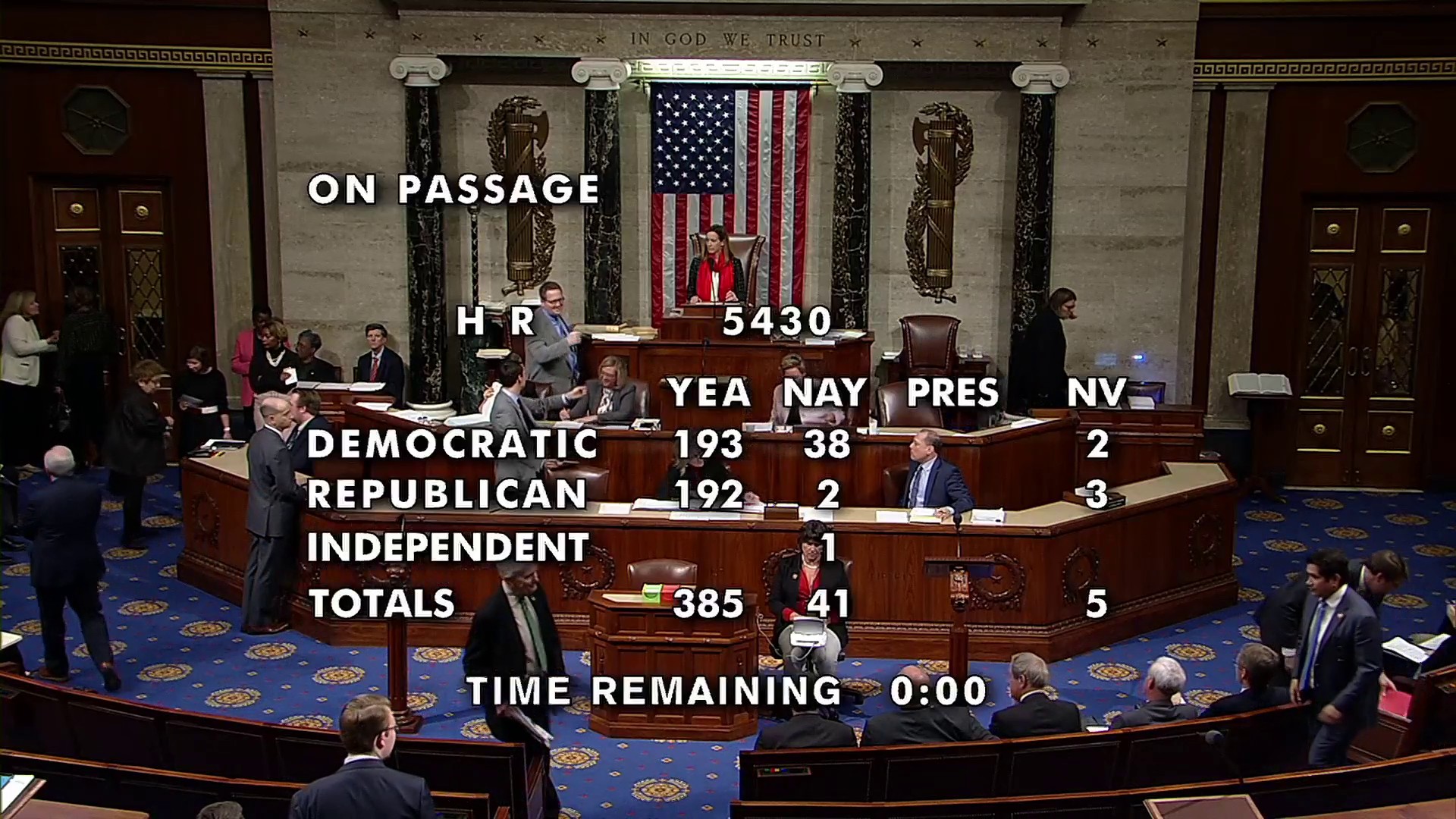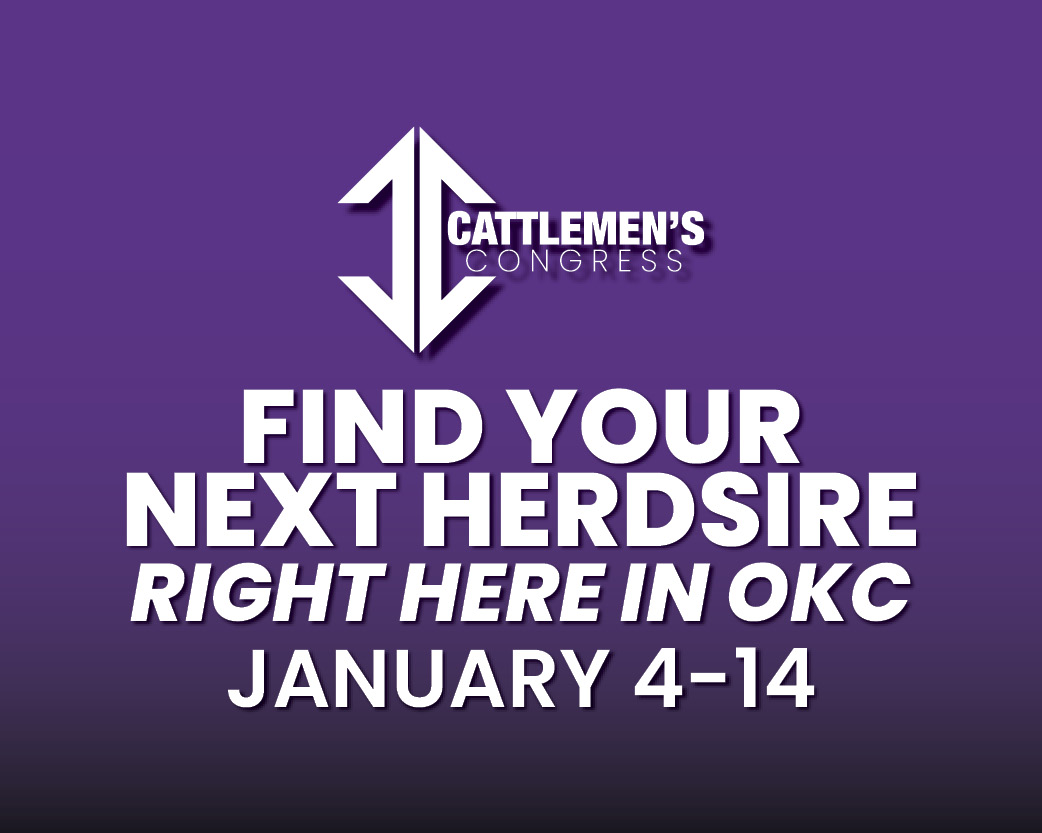
Agricultural News
Three Ag Groups Lament the Exclusion of Mandatory COOL in Final USMCA Implementing Bill Language
Fri, 20 Dec 2019 05:29:45 CST
 Two ag related groups came out with a negative word on the passage by the US House of the implementing legislation for USMCA. A third group signaled that by a divided vote within their National Board of Directors, they are supporting the "amended USMCA."
Two ag related groups came out with a negative word on the passage by the US House of the implementing legislation for USMCA. A third group signaled that by a divided vote within their National Board of Directors, they are supporting the "amended USMCA."
That third group is the National Farmers Union. In a statement on their website, President Roger Johnson says "As it was originally written, USMCA never would have garnered National Farmers Union's support. Not only did it fail to make significant improvements to NAFTA, but in some ways it was even worse especially its giveaways to the pharmaceutical industry, which would have led to higher health care costs. But thanks to the persistence of Speaker Pelosi and House Democrats, the final deal excludes those giveaways and strengthens labor, environmental, and enforcement provisions.
"Even so, this wasn't the fair trade deal farmers and ranchers were hoping for. It does nothing to restore COOL, despite its popularity with consumers and farmers alike. Consumers want to know where their food comes from and farmers want to tell them it's absurd that this commonsense and mutually beneficial rule still hasn't been reestablished. We are also disappointed that USMCA doesn't address import dumping, which has depressed domestic commodity prices and undermined the success of family farmers. And while some of the dairy provisions are moderately helpful to farmers in the U.S., it isn't enough to justify the corresponding harm to Canada's supply management system that has served their dairy farmers so well.
"USMCA might be a small step forward, but it's preceded by many large steps backward. Ultimately, these modest improvements are dwarfed by the immense damage that President Trump has inflicted by destroying our reputation as a reliable trading partner and by wiping out agricultural markets that farmers had worked for decades to build."
*******************
The two groups offering a thumbs down on USMCA were the US Cattlemen's Association and R-Calf USA.
Here's the statement from USCA:
Following the House of Representatives passage of the U.S.-Mexico-Canada Trade Agreement (USMCA) on Thursday, Leo McDonnell, Director Emeritus, United States Cattlemen's Association (USCA), and long-time cattle industry leader has sent a letter to the President of the United States, agriculture committee leaders in both congressional chambers and the House Ways and Means Subcommittee on Trade expressing disappointment at the exclusion of a country of origin labeling provision in the U.S.-Mexico-Canada Trade Agreement (USMCA). McDonnell provided clarification for policy-makers as USMCA approaches approval in the U.S. Senate and by the president and corrected misinformation provided by proponents of the trade agreement that misrepresent the impact of the North American Free Trade Agreement (NAFTA) on the U.S. cattle industry.
"While some have said that NAFTA has had a positive impact on U.S. cattle producers, that is not correct," wrote McDonnell. "NAFTA was an extension of the 1988 Canada-U.S. Free Trade Agreement (CUSFTA) to include Mexico and superseded the previous agreement with Canada. As one looks at the impact of North American free trade agreements you would need to go back to 1988 to accurately study prior trade flows with Canada and 1993 with Mexico as the two agreements went into force on January 1, 1988 and January 1, 1994 respectively."
"Looking at the three-year average prior to CUSFTA (1985,1986, 1987) on just live cattle, Canada was exporting on average 280,000 cattle to the U.S. However, during the last three years (2016,2017, 2018), exports from Canada have averaged 1,200,000."
"When studying cattle and beef/live cattle equivalents combines, the U.S. trade deficit with Canada has expanded by the equivalent of nearly 1.59 million head. Given this data, since NAFTA was implemented the U.S. trade deficit in cattle and beef/cattle equivalency with Mexico has expanded from 724,600 head to 1,220,700 head."
"Industry analysts most often use a formula that a 1% change in supply impacts price 1.5% to 2%. Using that basis, just the increase in the trade deficit in cattle and beef with Canada and Mexico of over 4% has impacted prices 6% to 8% and this is an industry that operates on very narrow margins that have historically had problems maintaining a 3% to 4% return on investment. This is further compounded by what the USITC Chairmen in 1999 stated in her report, 'packers can and do use imports to suppress domestic prices' and the Republican Commissioners on the U.S. Senate Trade Deficit Commission Report in 2000, "Easy availability of imports can limit price increases either by expanding available supply or reducing the ability of businesses to raise prices in order to pass on increases in their costs."
McDonnell described how currency devaluation or manipulation of the Mexican peso in the mid-1990's increased the impact of artificially cheap imports into the U.S. market, something McDonnell said was hardly a win for U.S. ranchers struggling to recover from the agriculture collapse of the 1980s.
"U.S. cattle producers were promised in past trade agreements that cattle and beef would be included for Special Rules for Perishable and Cyclical Ag Products in future trade agreements; however, this does not seem to be the case with USMCA," he wrote.
"This administration promised to "Make America Great Again," but it is becoming evident this does not include U.S. ranchers. The failure to include meaningful Country of Origin Labeling (COOL) for beef in USMCA is disheartening at best. During the few years that COOL for beef was in effect, U.S. ranchers experienced one of the greatest cattle markets in history because consumers and retailers were given choices and U.S. ranchers were allowed to compete on a more level playing field by identifying their product for consumers. Certainly, without COOL how can one have a level playing field or even expect to compete," McDonnell pointed out.
"Today, China requires the U.S. to comply with the following: 1) All beef must be derived from cattle that were either born raised and slaughtered in the U.S. or 2) are imported from Canada or Mexico and then raised and slaughtered in the U.S. or 3) imported from Canada or Mexico for direct slaughter in the U.S. Chinese consumers will be better informed about U.S. produced beef than American consumers."
"I feel it is important that the record needs to be set straight about the impact of NAFTA and USMCA and to express our disappointment that USMCA fails to address the problems it will create for U.S. ranchers."
****************
And finally- here is the statement released by R-Calf USA:
R-CALF USA issued the following statement on today's passage of the United States Mexico Canada Agreement (USMCA) in the U.S. House of Representatives. The USMCA, same as its predecessor the North American Free Trade Agreement (NAFTA), does not require beef derived from Mexican or Canadian cattle to bear a label of origin at retail sale in our domestic marketplace.
"We are extremely disappointed but not at all surprised that it is business as usual in the House of Representatives. They continue to support the financial self-interests of multinational corporations while harming American consumers and independent cattle producers.
"But it isn't over yet, we will now shift our focus on the Senate and meanwhile, we know that our efforts have significantly elevated the awareness that mandatory Country-of-Origin Labeling (COOL) for beef must be restored and we will not rest until it is.
"The longer Congress and the president stall to reinstate mandatory COOL for beef more and more of America's largest segment of agriculture, the U.S. cattle industry along with economic opportunities for independent cattle producers, will be transferred to other countries; thus depriving rural America of its economic benefits.
WebReadyTM Powered by WireReady® NSI
Top Agricultural News
More Headlines...





